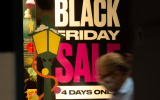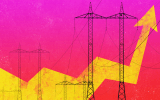
US President Donald Trump has threatened 50 per cent tariffs against India for buying Russian oil, just after hailing “great progress” in talks with President Vladimir Putin.
US special envoy Steve Witkoff met Putin on Wednesday (local time) and Trump said the discussions had been “highly productive”.
“I updated some of our European Allies,” posted Trump on Truth Social.
“Everyone agrees this war must come to a close, and we will work towards that in the days and weeks to come.”
The Kremlin said the meeting between Witkoff and Putin was “constructive and useful”, according to Russian state media TASS.
US Secretary of State Marco Rubio said later that more had to be done to reach an agreement between the parties.
“Today was a good day, but we got a lot of work ahead,” he told Fox Business.
“There’s still many impediments to overcome, and we hope to do that over the next few days and hours.”
The meeting was just two days before Friday’s upcoming deadline for Russia to reach a peace deal with Ukraine or face severe economic penalties.
After the three-hour talks, Trump issued an executive order imposing an additional 25 per cent tariff on goods from India as punishment for buying Russian oil.
That took tariffs against India to 50 per cent, the highest among Asian peers, which India slammed as “unfair”.
Further secondary sanctions against other countries that traded with Russia were “still expected to be implemented on Friday”, a White House official told CNN.
Trump, who appears increasingly frustrated with Putin over the lack of progress towards a peace deal in Ukraine, has threatened to impose heavy tariffs on countries that buy Russian exports.
He is exerting particular pressure on India, which along with China is a huge buyer of Russian oil. The Kremlin says threats to penalise countries that trade with Russia are illegal.
Putin is unlikely to bow to Trump’s sanctions ultimatum because he believes he is winning the war and his military goals take precedence over his desire to improve relations with the US, three sources close to the Kremlin told Reuters.
“The visit of Witkoff is a last-ditch effort to find a face-saving solution for both sides. I don’t think, however, that there will be anything of a compromise between the two,” said Gerhard Mangott, an Austrian analyst and member of a group of Western academics who have met Putin regularly over the years.
“Russia will insist it is prepared to have a ceasefire, but [only] under the conditions that it has formulated for the last two or three years already,” he said.
“Trump will be under pressure to do what he has announced – to raise tariffs for all the countries buying oil and gas, and uranium probably as well, from Russia.”
The Russian sources told Reuters that Putin was sceptical that yet more US sanctions would have much of an impact after successive waves of economic penalties during 3½ years of war.
The Russian leader does not want to anger Trump, and he realises that he may be spurning a chance to improve relations with Washington and the West. But sources said his war goals were more important to him.
Witkoff, a real estate billionaire, has had several long meetings with Putin. He had no diplomatic experience before joining Trump’s team in January, but has been simultaneously tasked with seeking ceasefires in the Ukraine and Gaza wars, as well as negotiating in the crisis over Iran’s nuclear programme.
Critics have portrayed him as out of his depth when pitched into a head-to-head negotiation with Putin, Russia’s leader for 25 years.
Critics have at times accused Witkoff of echoing the Kremlin’s narrative. In an interview with journalist Tucker Carlson in March, for example, Witkoff said there was no reason why Russia would want to absorb Ukraine or bite off more of its territory, and it was “preposterous” to think that Putin would want to send his army marching across Europe.
Ukraine and many of its European allies say the opposite. Putin denies any designs on NATO territory, and Moscow has repeatedly cast such charges as evidence of European hostility and “Russophobia”.
-with PA










